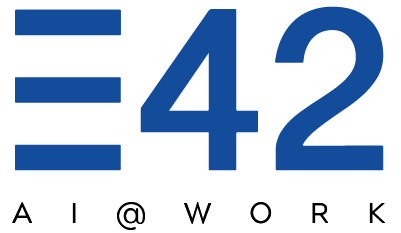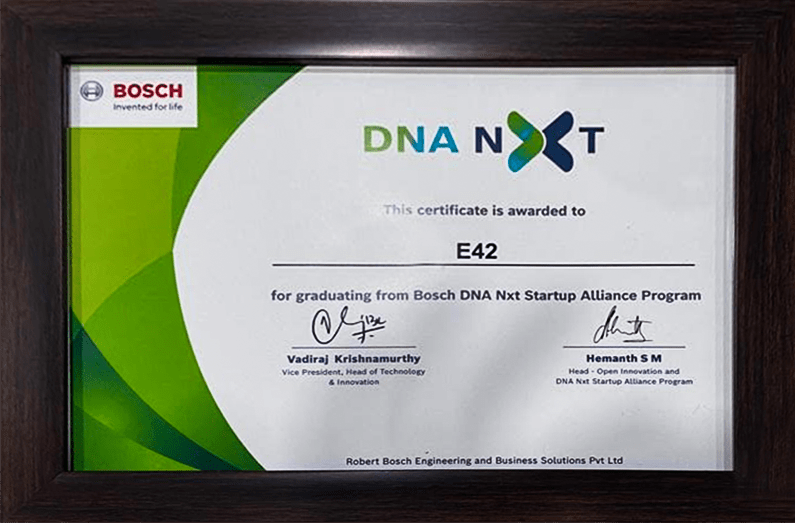Imagine a bustling customer service center in an e-commerce company. The staff is inundated with repetitive queries, such as order tracking requests and product inquiries. Despite their dedication, handling these routine tasks consumes valuable time and resources.
This is where Cognitive Process Automation (CPA) strides in as a game-changer. CPA is like having an intelligent assistant in the customer service team. It not only answers routine questions but also learns and adapts, becoming more efficient with each interaction.
The pursuit of efficiency, cost reduction, and streamlined operations is unceasing and CPA is reshaping how businesses manage intricate and repetitive tasks. CPA is not just a tool but a strategic asset that can significantly enhance business operations. It’s like having an extra pair of hands that are not only capable but also intelligent, learning from each interaction to become more efficient. This synergy between human intelligence and artificial intelligence is what makes CPA a game-changer in today’s business world.
In this article, we embark on a journey to delve into the world of Cognitive Process Automation and its profound influence across diverse industries.
A glance at all that this article covers:
What is Cognitive Process Automation?
Cognitive Process Automation (CPA) is an advanced technological paradigm that leverages artificial intelligence (AI), machine learning (ML), and natural language processing (NLP) to automate complex cognitive tasks traditionally performed by humans. It combines elements of AI and automation to emulate human thought processes in decision-making and problem-solving.
CPA employs algorithms to analyze vast datasets, extract meaningful insights, and make informed decisions autonomously. It excels in handling unstructured data, such as text, voice, or images, by utilizing NLP to comprehend and process human language. Furthermore, ML algorithms enable CPA systems to continuously learn and adapt from data, improving their performance over time.
Differentiating CPA from RPA
Cognitive Process Automation (CPA) is the pinnacle of the integration of artificial intelligence and automation, augmenting human capabilities in their professional activities. With its sophisticated features such as Natural Language Processing (NLP), Cognitive process automation solutions can interpret human language and context, enabling effortless interactions with users. Intelligent Document Processing (IDP), a type of intelligent automation, facilitates precise data extraction from diverse documents, simplifying the process of information handling. CPA’s adaptive learning guarantees perpetual enhancement, making it capable of adjusting to changing business environments. By utilizing NLP, IDP, and adaptive learning, CPA tools relieve humans from routine and time-intensive tasks, allowing them to concentrate on more strategic initiatives and promoting a more productive and efficient work setting.
Conversely, Robotic Process Automation (RPA) acted as the forerunner to Cognitive process automation, setting the groundwork for intelligent automation. RPA is engineered to automate repetitive tasks that follow a set of rules by replicating human actions on user interfaces. While RPA considerably enhanced operational efficiency, it lacked the cognitive abilities necessary to manage complex tasks involving unstructured data and decision-making.
Applications of Cognitive Process Automation
Cognitive Process Automation (CPA) offers a broad spectrum of applications across diverse industries, revolutionizing the way organizations manage complex and repetitive tasks. By harnessing AI-powered tools, CPA can automate cognitive tasks traditionally executed by humans, leading to enhanced efficiency, precision, and productivity. Here are some key areas where CPA is making a significant impact:
Customer Service and Support:
Cognitive process automation has revolutionized customer service and support roles by automating repetitive tasks such as responding to emails and chats, routing tickets, and resolving basic issues. AI-powered assistants can provide accurate and personalized assistance to customers, improving response times and elevating the overall customer experience. These AI assistants can handle various inquiries, allowing human agents to concentrate on more complex and critical customer interactions.
Data Entry and Document Processing:
One of the major applications of Cognitive process automation is in automating data entry and document processing tasks. Cognitive process automation systems can extract information from various types of documents such as invoices, forms, and contracts using techniques like OCR, ICR, and ML algorithms. This not only eliminates manual data entry errors but also increases processing speed. Furthermore, CPA allows organizations to manage and analyze large volumes of data more efficiently.
Fraud Detection and Risk Management:
In the BFSI industries, Cognitive process automation tools play a pivotal role in fraud detection and risk management. By analyzing vast amounts of transactional data, AI-powered assistants can identify patterns, anomalies, and suspicious activities. This enables businesses to detect and prevent fraud in real-time, safeguarding their customers’ interests and minimizing financial losses.
Process Automation and Workflow Management:
Cognitive process automation tools can streamline and automate complex business processes and workflows, enabling organizations to achieve greater operational efficiency. By automating cognitive tasks, Cognitive process automation reduces human error, accelerates process execution, and ensures consistent adherence to rules and policies. This also allows businesses to scale their operations without a corresponding increase in labor costs.
Human Resources and Talent Management:
In the realm of HR processes such as candidate screening, resume parsing, and employee onboarding, CPA tools can automate various tasks. With the implementation of AI-powered assistants, companies can analyze job applications, match candidates with suitable roles, and automate repetitive administrative tasks. This frees up HR professionals to focus on strategic initiatives like talent development and employee engagement.
Benefits of Cognitive Process Automation
Cognitive Process Automation brings a multitude of benefits to businesses and organizations across a variety of industries, enhancing efficiency, precision, and productivity. Here are some key advantages in detail:
Boosted Efficiency and Productivity:
CPA tools primarily contribute to a significant enhancement in efficiency and productivity. By automating cognitive tasks, they can eradicate human errors and reduce manual labor. This leads to quicker and more precise execution of processes. With automation taking care of repetitive and time-consuming tasks, employees can concentrate on activities that require human judgment and creativity. This redistribution of resources can propel overall operational efficiency and expedite business outcomes.
Increased Accuracy and Compliance:
CPA tools are adept at consistently applying rules, policies, and regulatory requirements. Automation of cognitive tasks allows organizations to achieve higher levels of accuracy. CPA also ensures standardized execution of processes, minimizing the risk of errors caused by human variability. With in-built audit trails and robust data governance mechanisms, organizations can maintain transparency and accountability throughout automated processes, thereby reducing compliance risks.
Cost Efficiency:
The implementation of Cognitive process automation tools can result in substantial cost savings for organizations. Automation of various tasks reduces the need for manual labor, thereby decreasing operational costs. Moreover, CPA tools can perform tasks more efficiently and at scale, often surpassing the speed and accuracy of human workers. Additionally, CPA eliminates the need for employee training and onboarding in certain areas, further reducing workforce management costs.
Scalability and Adaptability:
CPA tools offer scalability and adaptability. These tools enable companies to handle increased workloads and adapt to changing business demands. As the volume and complexity of tasks grow, CPA can efficiently scale up to meet the requirements without significant resource constraints. Furthermore, CPA tools can be easily configured and customized to accommodate specific business processes, allowing them to swiftly adapt to evolving market conditions and regulatory changes.
Informed Decision Making:
By analyzing vast amounts of data, CPA tools can provide data-driven insights that assist organizations with strategic decision-making. These insights help businesses identify emerging trends, optimize resource allocation, predict market demand, among other things. With access to real-time, data-driven insights, organizations can make informed decisions that align with their long-term goals, helping businesses gain a competitive edge.
Key Considerations for Selecting Cognitive Process Automation Tools: Ethical Implications and Scalability
When selecting a Cognitive process automation tool, organizations must meticulously evaluate several factors. Ethical considerations are paramount, ensuring that the tools are in line with established guidelines and data privacy regulations to uphold stakeholder trust. It’s crucial to determine how well the CPA tools integrate with the existing system and application lifecycle management (ALM) practices for a smooth implementation. Furthermore, scalability should be a primary consideration, opting for tools that can manage escalating workloads and support the organization’s expansion. By assessing these aspects, organizations can make informed decisions and choose the most appropriate CPA tools for enhanced productivity and efficiency.
Conclusion:
Cognitive process automation is reshaping the business landscape by automating cognitive tasks and enabling organizations to achieve unprecedented efficiency, accuracy, and productivity. From customer service to fraud detection and decision support, CPA is revolutionizing various industries and unlocking new opportunities for growth. As organizations embrace this transformative technology, it is crucial to balance the benefits of automation with ethical considerations and human-AI collaboration, ensuring a future where CPA enhances our lives and work.
Elevate Human Experiences with E42 AI Co-Workers
E42 is a no-code Cognitive Process Automation (CPA) platform to create AI co-workers that automate various business processes across functions at scale. Each AI co-worker can be customized with specific features to address particular problem areas in any industry or vertical. At the core of every AI co-worker’s configuration is the ability to think like humans, understand user sentiments, take action based on those sentiments, and learn from every interaction. AI co-workers can be used independently to automate specific processes, or they can be combined to provide process-agnostic enterprise automation. To start your automation journey, get in touch with us at interact@e42.ai today!



